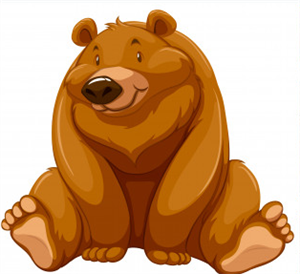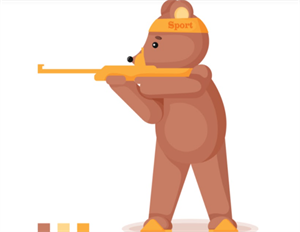PDF chapter test TRY NOW
The months rolled on and Bruno had grown many times the size he was when he came. He had equalled the Alsatians in height and had even outgrown them. But was just as sweet, just as mischievous, just as playful. And he was very fond of us all. Above all, he loved my wife, and she loved him too! She had changed his name from Bruno, to Baba, a Hindustani word signifying ‘small boy’. And he could do a few tricks, too. At the command, ‘Baba, wrestle’, or ‘Baba, box,’ he vigorously tackled anyone who came forward for a rough and tumble. Give him a stick and say ‘Baba, hold gun’, and he pointed the stick at you. Ask him, ‘Baba, where’s baby?’ and he immediately produced and cradled affectionately a stump of wood which he had carefully concealed in his straw bed. But because of the tenants’ children, poor Bruno, or Baba, had to be kept chained most of the time.
Then my son and I advised my wife, and friends advised her too, to give Baba to the zoo at Mysore. He was getting too big to keep at home. After some weeks of such advice she at last consented. Hastily, and before she could change her mind, a letter was written to the curator of the zoo. Did he want a tame bear for his collection? He replied, “Yes”. The zoo sent a cage from Mysore in a lorry, a distance of eighty-seven miles, and Baba was packed off.
Explanation:
The narrator flash forwards to many months later, when Bruno had grown in size, equalling the same height as the Alsatian dogs. He had even grown bigger than them in size. He emphasizes that Bruno had only grown in size, but his childish nature remained the same. He plays pranks and games just like his younger self. The love and bond between the narrator's wife and Bruno kept increasing as well. His wife changes his name from Bruno to a much more Indian name 'Baba', showing their connection to India, in spite of being British. 'Baba' meant 'small boy', which is an irony because the name was changed only when he had grown considerably in size. The name applies to his nature and not his outer appearance.

A fully grown bear

Bear pointing a gun
Bruno had to be kept chained because of the tenant's children. The same Bruno, who as a cub was not a threat to the children, suddenly poses a threat because of his size and growth. The narrator and his son advice his wife for the same reason, to send Bruno to a zoo. His grown size was beginning to bother the house. He was getting hard to maintain inside the house. They somehow convince the wife to send the bear to the zoo in Mysore. The narrator quickly writes a letter to the curator of the zoo, who manages the zoo's animal collection, as he did not want his wife to change his mind. The curator was more than happy to take a tamed bear into the zoo, and a lorry was sent from the zoo, a distance of eighty-seven miles to take him.
| SI.no | Words | Meaning |
1 | Outgrown | To become too big for something |
2 | Mischievous | Naughty |
3 | Hindustani | Another word to refer Indian |
4 | Vigorously | Quickly; in a faster pace |
5 | Tumble | To fall down |
6 | Concealed | Hidden |
7 | Hastily | In a hurry |
8 | Curator | One who manages the zoo's animal collection |
9 | Irony | An unexpected or complete opposite to a present situation |
Reference:
National Council of Educational Research and Training (2006). Beehive. The Bond of Love - Kenneth Anderson (pp.113-118). Published at the Publication Division by the Secretary, National Council of Educational Research and Training, Sri Aurobindo Marg, New Delhi.
